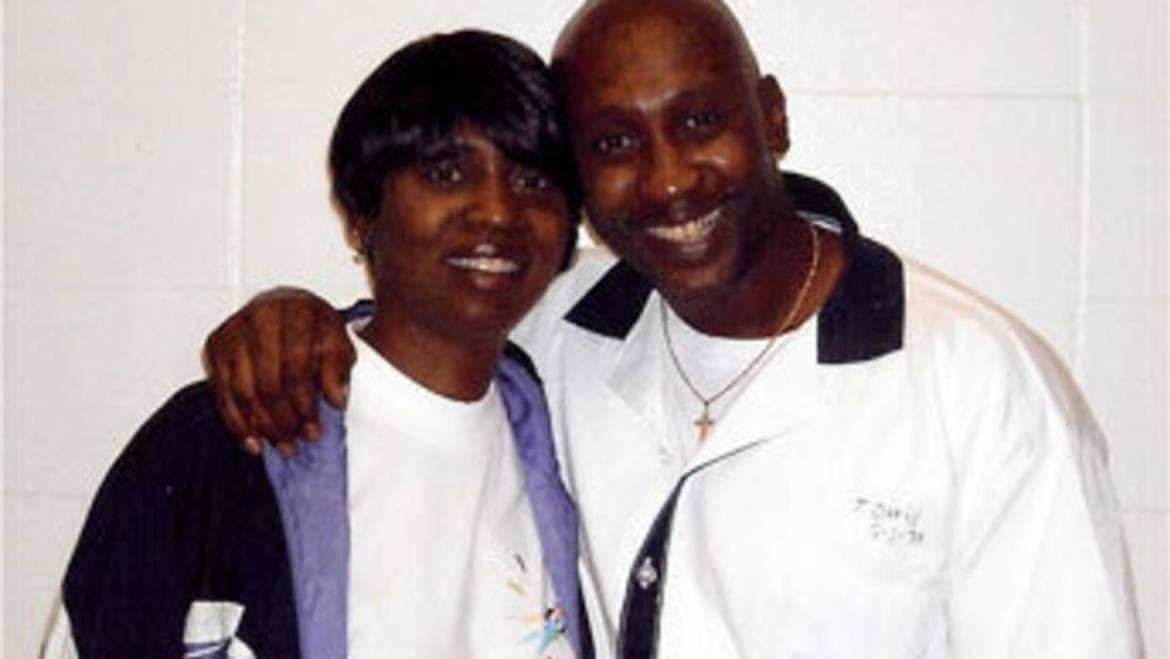
Martina Correia emerged as an anti-death penalty advocate.
By the fall of 2011, anti-death penalty advocates chanted the now-familiar refrains – “I Am Troy Davis” and “Too Much Doubt” – as they rallied around Davis, a Georgia man who was on death row in the 1989 murder of off-duty police officer Mark MacPhail.
And while the case’s former lead prosecutor and MacPhail’s family maintained that Davis was guilty, criminal justice observers and a broad group of high-profile figures – ranging from Archbishop Desmond Tutu and former Reagan-era FBI Director William Sessions to musicians Cee Lo Green and Big Boi – were troubled after more than half a dozen prosecution witnesses recanted prior testimony and statements.
Meanwhile, Davis’ sister – Martina Correia – emerged as a prominent criminal justice reform advocate as the case garnered widespread international attention in recent years. In the spring of 2011, I conducted an extensive interview with Correia while reporting on the case for The Crisis magazine. In the days prior to Davis’ execution, Correia was less visible as she waged an entirely different fight – breast cancer. Published here for the first time are excerpts from one of her last interviews. In December 2011, Correia died of liver failure. She was 44.
The U.S. Supreme Court recently declined to review your brother’s case. What is your reaction to that development?
They don’t want to take responsibility to actually investigate death penalty cases. And it says to me that the Supreme Court really doesn’t care about executing innocent people in this country. It’s something that I just cannot fathom.
The Supreme Court previously bounced an appeal in this case back to the state court system. Do you still believe that re-opening the case should happen at the federal level?
I think that we would have a really good opportunity because the judges here in Georgia all know one another. Prosecutors call the judges on a first name basis. Nobody seems to care that a mistake has been made and that we really need to place a fresh pair of eyes on this case. If Troy got a new trial, he wouldn’t be convicted because everything that they used against him has fallen apart.
And now the case goes to the Georgia Pardons Board. What is your hope now?
The state of Georgia said that they would not execute someone when there’s doubt. And I’m holding them to that.
For decades, you’ve maintained that your brother did not kill Officer MacPhail. What is your basis for this claim?
We’re close brothers and sisters. Troy can finish my sentence and I can finish his. I asked him point-blank ‘Did you have anything to do with this?’ And he said ‘Absolutely not.’ I told him that I had to ask because the only way that I could help him is by knowing the truth.
You’ve received strong public support from Amnesty International and the NAACP while also addressing audiences around the world about Troy’s case. But what was happening prior to this point when Troy was convicted in 1991 through 2006?
We have a strong sense of faith. And my brother always believed that the truth would be the final word and that he would be exonerated by the merits of the truth. He didn’t have a voice and I became his voice. I carried parts of his case file with me to the NAACP, the National Coalition to Abolish The Death Penalty, the Campaign To End The Death Penalty, the Rainbow PUSH Coalition, and the National Action Network. Any organization that said that they believe in justice and human rights, I contacted them and sought information. People sent me things like – ‘Oh, this is a really compelling case and we wish you luck.’ I just kept pushing and kept pushing. I had to learn that it’s not always the message, but the messenger. So there were some times when I had to remove myself and let somebody else tell the story and it gave it more validation. But I was always behind-the-scenes saying ‘OK, well this person won’t listen, let’s go to the next person.’ I had to give up my military career and everything else because I said that I was not going to allow them to kill my brother for something that he did not do.
Is it true that you’re a cancer survivor?
[Sighs] I call myself a cancer warrior because I have never been in remission. I have been taking chemotherapy for ten straight years as of March this year (2011). And so I would have chemo on one day and be in a different country talking about my brother on another day. Sometimes I would be on a radio show and would have to lie down because I was feeling so weak.
Did I hear you correctly? Did you say ten straight years of chemo?
Yes. March 28, 2001 was when I was diagnosed and I was given six months to live. I’ve been taking chemotherapy for consecutive years, non-stop.
If the appeals in this case fail and the execution ultimately happens, have you prepared yourself for that possibility?
Troy told me once that the only thing they can take away from him is his physical form because God saved him a long time ago. It’s just amazing to see the way that he interacts with my son, DeJaun, who will be 17 next week. He wants to be a biomedical researcher and find a cure for cancer. I’ve already lost my father and my mother. I’m the matriarch now and I have to fill in the gap. I just draw strength from Troy because if he can be where he is and still see God, then I can be his voice.


Add Comment